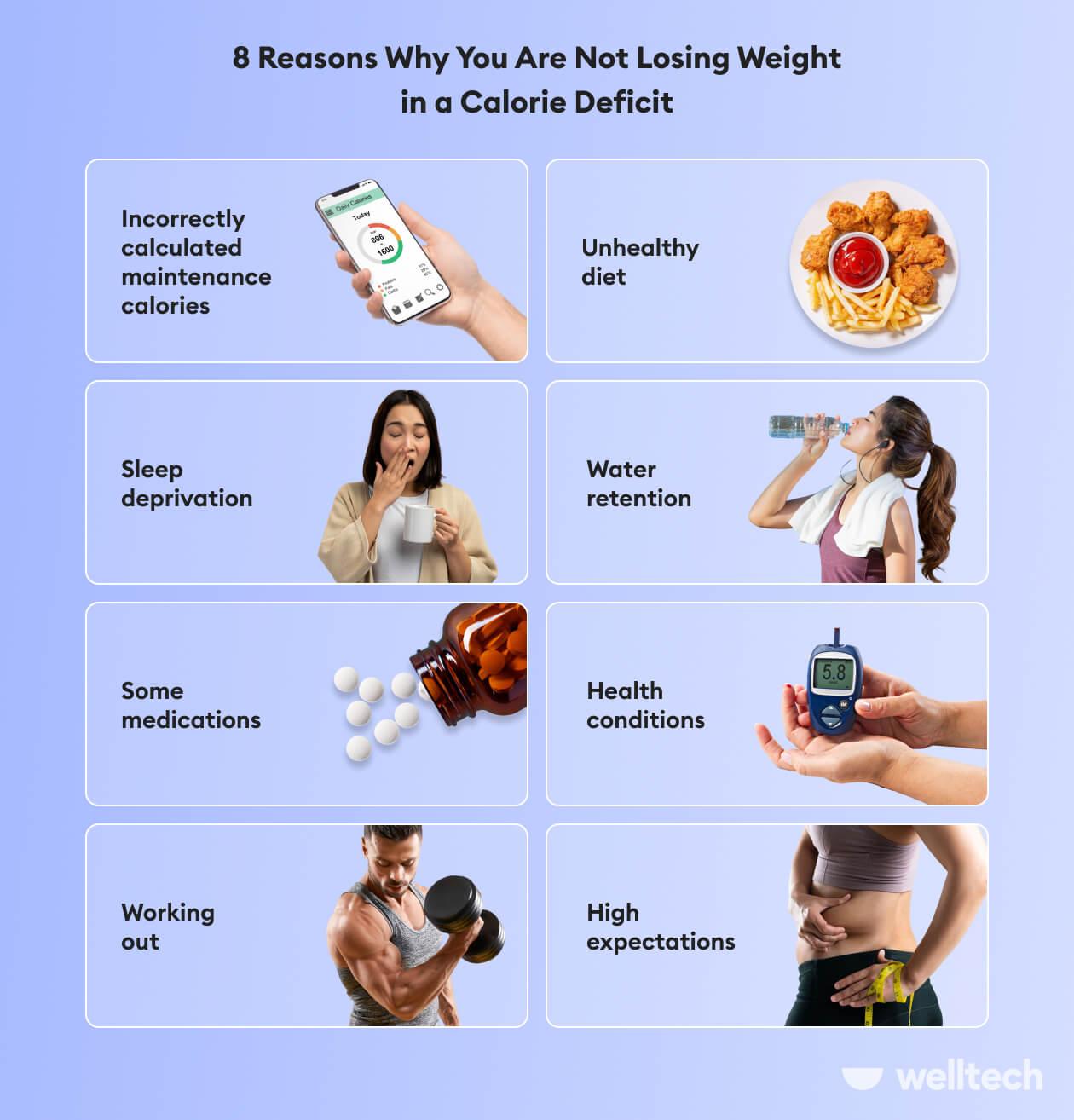In a world where the pursuit of the perfect physique often overshadows the pursuit of well-being, the allure of extreme caloric deficits has captured the imagination of many. Promising rapid weight loss and a shortcut to the body of one’s dreams, these drastic dietary measures can seem like a beacon of hope. Yet, beneath the surface of these enticing promises lies a complex web of risks and repercussions that often go unnoticed. As we delve into the shadows of extreme caloric restriction, this article seeks to unravel the intricate tapestry of health implications that accompany such choices. By exploring the delicate balance between nourishment and deprivation, we aim to illuminate the path towards a more sustainable and health-conscious approach to weight management.
Understanding the Impact on Metabolism and Muscle Loss
Extreme caloric deficits can trigger a cascade of metabolic changes that may have long-term consequences on your body. When the body senses a severe reduction in calorie intake, it shifts into a survival mode, slowing down the metabolism to conserve energy. This can lead to decreased energy levels and a reduction in overall metabolic rate, making it harder to maintain weight loss over time. Additionally, the body’s prioritization of essential functions can result in less energy available for muscle maintenance and repair, leading to muscle loss.
The impact on muscle mass is particularly concerning as muscle tissue plays a crucial role in metabolic health. Key effects include:
– Reduced muscle strength and endurance, affecting physical performance and daily activities.
– Increased risk of injury, due to weakened muscles and decreased joint support.
– Altered body composition, where muscle loss might be replaced by fat, despite weight loss.
– Impaired metabolic function, as muscle tissue is integral to efficient calorie burning.
Adopting a balanced approach to calorie reduction, incorporating adequate protein intake, and engaging in resistance training can help mitigate these adverse effects, supporting a healthier and more sustainable weight loss journey.

Exploring Psychological Effects and Eating Disorders
Delving into the psychological impacts of severe caloric restriction reveals a complex interplay of mental health challenges. Emotional volatility can surface, as the brain is deprived of essential nutrients, leading to increased irritability and mood swings. This lack of nourishment can also exacerbate feelings of anxiety and depression, further complicating an individual’s emotional landscape.
- Impaired Cognitive Function: Difficulty concentrating and poor decision-making.
- Obsessive Thoughts: Constant preoccupation with food and body image.
- Social Withdrawal: Avoidance of social situations involving food.
Moreover, the link between extreme caloric deficits and eating disorders is well-documented. Restrictive eating patterns can evolve into disorders such as anorexia or bulimia, where the control over food intake becomes an all-consuming obsession. This can lead to a vicious cycle where the individual’s mental and physical health deteriorate simultaneously, underscoring the critical need for balanced nutritional approaches.
Recognizing the Warning Signs of Nutritional Deficiencies
When embarking on a journey of extreme caloric restriction, it’s crucial to be vigilant about the body’s subtle cries for help. Nutritional deficiencies can manifest in a myriad of ways, often whispering rather than shouting. Fatigue and dizziness are common early indicators, hinting that the body is struggling to perform basic functions. The skin, too, may reveal hidden truths; dryness, frequent bruising, or a pallor that persists can all signal that essential nutrients are missing from your diet.
- Brittle hair and nails: These can be the first to suffer when key nutrients like biotin or zinc are lacking.
- Muscle cramps: Often due to low levels of calcium, magnesium, or potassium.
- Frequent infections: An immune system weakened by insufficient vitamin C or zinc might leave you more vulnerable.
Pay attention to these signs as they might be a nudge to reassess your dietary choices. Extreme caloric deficits may promise quick results, but they can also rob the body of its necessary vitality, leading to long-term health consequences.

Crafting a Balanced Approach to Sustainable Weight Loss
While the allure of rapid weight loss through extreme caloric deficits can be tempting, it often comes with a slew of hidden dangers that can derail long-term health goals. These drastic measures might initially lead to quick results, but they often result in muscle loss, decreased metabolism, and nutritional deficiencies. Understanding the risks associated with these practices is crucial for anyone looking to maintain a healthy lifestyle.
- Muscle Loss: When the body is deprived of sufficient calories, it may start breaking down muscle tissue for energy, leading to a loss in muscle mass and strength.
- Metabolic Slowdown: A significant reduction in calorie intake can slow down the metabolism, making it harder to lose weight and easier to regain it once normal eating resumes.
- Nutritional Deficiencies: Extreme diets often lack essential nutrients, which can result in deficiencies that affect overall health, energy levels, and well-being.
Embracing a balanced approach that combines a moderate caloric deficit with regular physical activity and a nutrient-rich diet not only fosters sustainable weight loss but also enhances overall health. By prioritizing well-being over quick fixes, individuals can achieve their goals in a healthier and more fulfilling manner.
Insights and Conclusions
As we conclude our exploration into the intricate world of extreme caloric deficits, it becomes evident that the journey to understanding our bodies is as complex as the human spirit itself. While the allure of rapid weight loss may shine brightly on the horizon, it is crucial to navigate this path with caution and wisdom. The human body, a marvel of resilience and adaptation, requires balance and nourishment to thrive. By embracing a mindful approach to nutrition and health, we honor the delicate equilibrium that sustains us. Let us remember that the quest for well-being is not a sprint, but a marathon—one that invites us to listen to our bodies, respect their limits, and celebrate their strengths. As we close this chapter, may we carry forward the knowledge that true health is not found in deprivation, but in the harmony of mindful choices and sustainable habits.


































